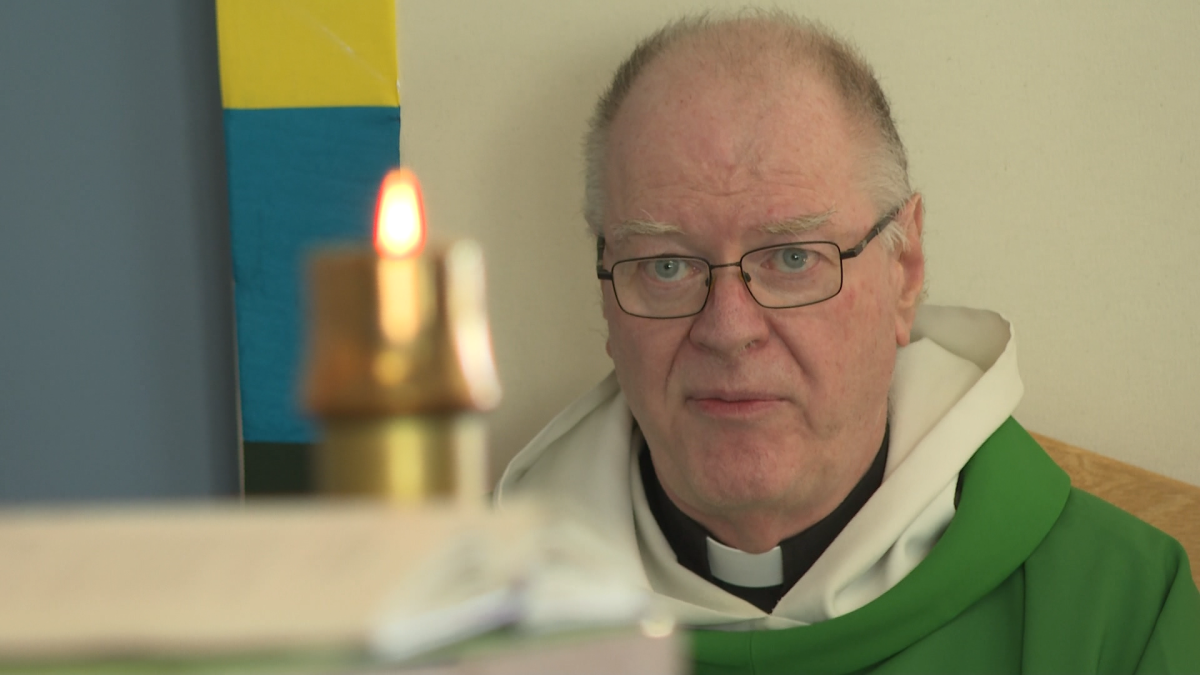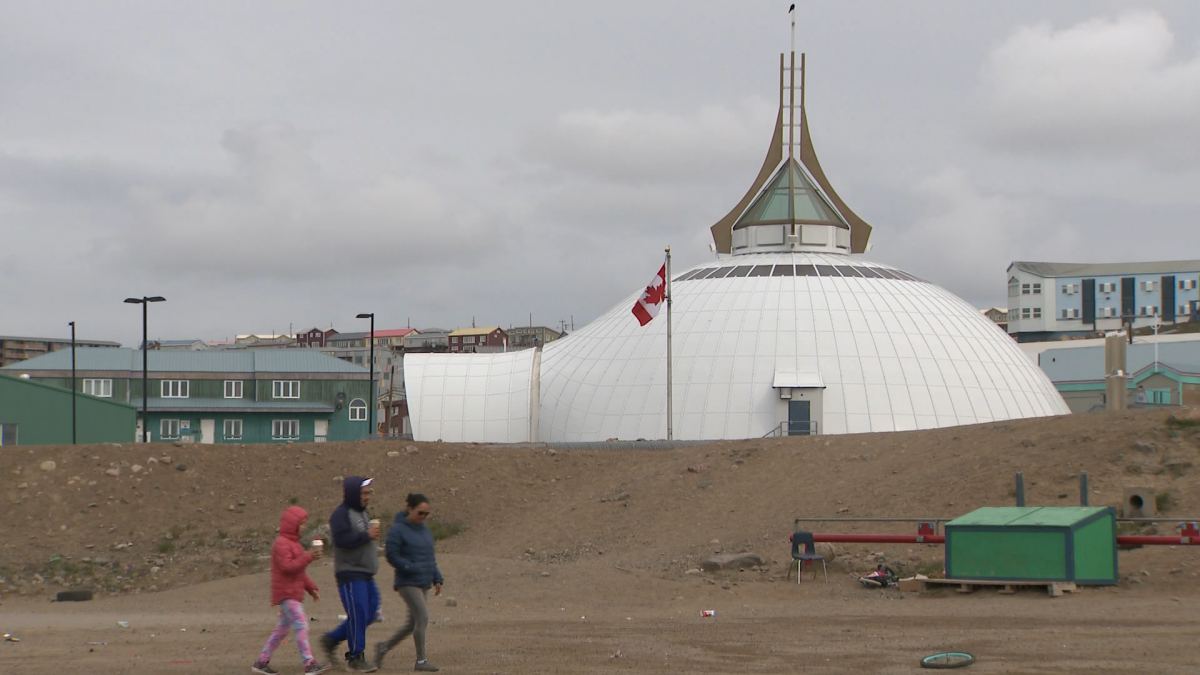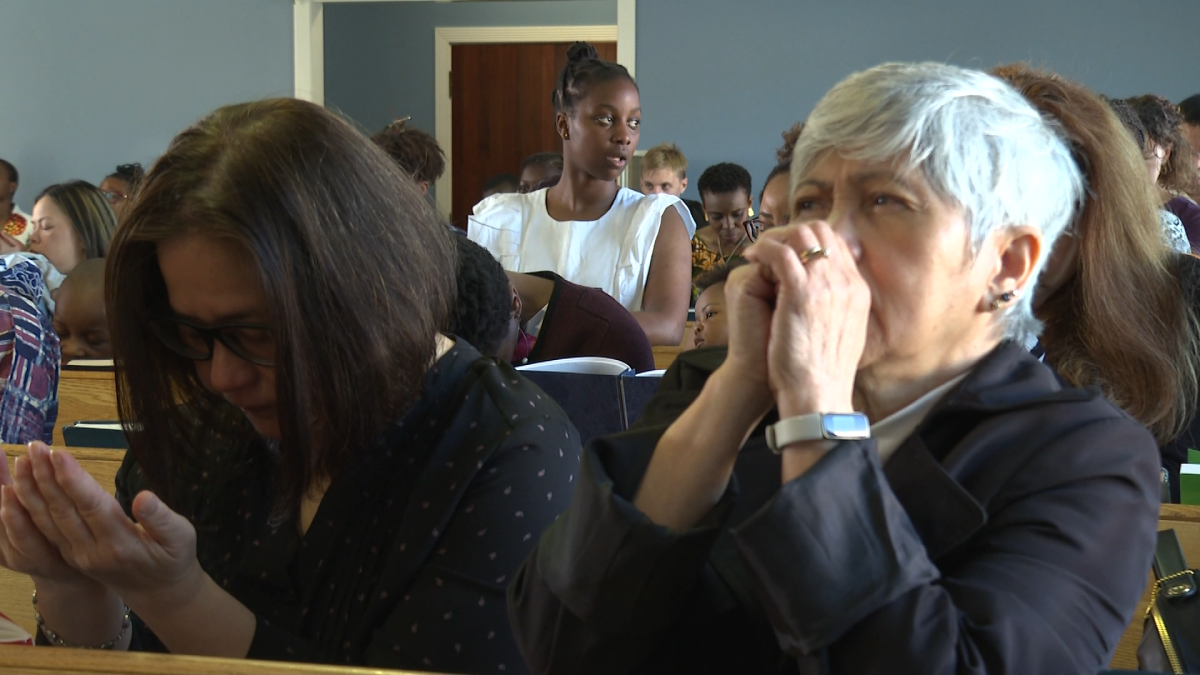Following the discovery of unmarked graves at former residential school sites and ahead of Pope Francis’ visit to Nunavut’s capital on Friday, the City of Iqaluit has passed a bylaw that could require churches to begin paying property taxes.


Religious institutions in Canada are generally exempt from paying taxes. Iqaluit’s new bylaw, first proposed by the mayor last year, requires churches and other community groups to apply for tax relief. Applicants must meet a series of strict conditions and the total annual funding available for all groups is capped at $300,000.
City council approved the third and final reading of the bylaw on April 12, which means local churches risk receiving only partial tax relief, or none at all, beginning in 2023.
“It is unfair. It is a kind of revenge, a kind of game,” said Father Daniel Perreault, pastor at Our Lady of the Assumption, Iqaluit’s only Catholic Church.
Perreault said the bylaw may limit the church’s ability to offer free services — from weddings and funerals to hospital and prison visits.
“It will not kill us. It’s just one more thing to make us suffer a little bit more,” he told Global News. “For some churches, they can even (become) bankrupt by that tax.”

Last year, 16 local organizations were exempt from paying property taxes under the city’s previous rules, including eight religious institutions.
In a statement, a spokesperson for the City of Iqaluit said the “intent of this bylaw is to provide a fair opportunity, to all community-based organizations, to apply for full or partial property tax relief.”

Get breaking National news
“This is not a by-law specific to the church,” the spokesperson said.
Nunavut MP Lori Idlout also defended the bylaw in an interview with Global News in Iqaluit, noting the remote northern city is already struggling to pay for basic services.
“Everyone is lacking in resources,” she said. “It’s not fair to the rest of the municipality to have to carry the burden of a faith-based group — that itself is part of the history of colonialism.”
The bylaw has proved polarising in the community, which is home to about 7,500 people. The per-capita impact of residential schools was higher in the North than anywhere else in Canada because of its large Indigenous population.
But despite their traumatic history with the church, around three quarters of Iqaluit’s population still identifies as Christian, according to Statistics Canada.
Global News recently attended Sunday morning mass at Our Lady of the Assumption, where parishioners from a range of ethnic backgrounds recited scripture in English, French and Inuktitut. The pews were packed with several dozen people, who bowed their heads as Father Perreault prayed for those who “hate the church.”
Asked about the significance of the Pope’s upcoming visit, Father Perreault confessed he didn’t know what to expect.
“It will be a great day for all of us,” he told Global News following the service. “But for many people it will be another occasion to hate us more. This is their decision: to love or to hate. It is a decision.”
The Pope will spend just three hours in Iqaluit, where he’ll attend a public event hosted by members of the Inuit community and a private meeting with some of Nunavut’s residential school survivors.
Abraham Tagalik attended Sir Martin Frobisher Federal Day School as a child. The former radio host and co-founder of the Aboriginal Peoples Television Network told Global News he welcomed the Pope’s visit and hoped for a heartfelt apology.
“It’s good that he’s coming. It’s almost surreal,” Tagalik said.
While grilling freshly caught Arctic char on the banks of the Sylvia Grinnell River, he explained why he believes the discovery of unmarked grave sites has only accelerated the decline of the church’s role in Nunavut.
“In the early days, our parents were very much going to church and following the teachings of the Bible,” he said.
“The young people today, they don’t go to church, they don’t read the Bible, they’re not really religious in any way anymore. I think it was kind of forced on us at that stage. It was all part of converting us,” he said.
“They’ve lost the control they used to have.”








Comments